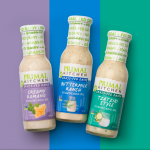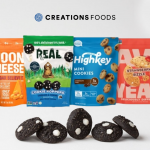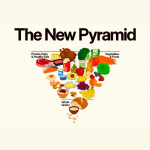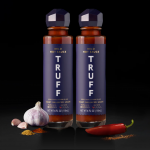NOSH Live Day One Recap: Jeni’s CEO Announces Departure; Magic Spoon Discusses Fundraise
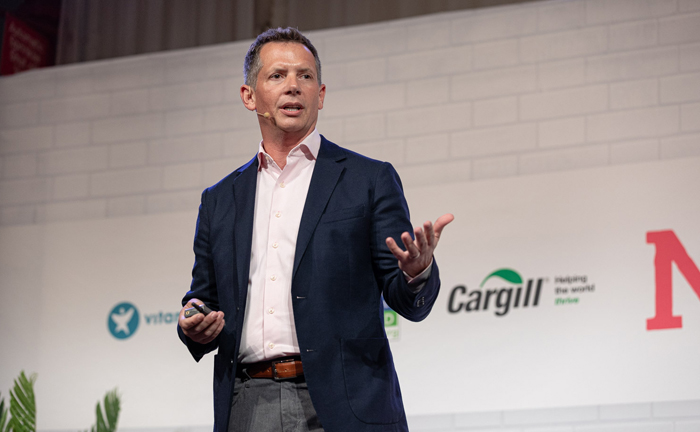
Jeni’s CEO Announces Departure
Speaking on stage during the opening day of NOSH Live Summer 2022 in New York City this morning, John Lowe, CEO of Jeni’s Splendid Ice Creams, announced he will step down from the role after 13 years.
Lowe told the audience at the top of his presentation that he has instructed Jeni’s board of directors to begin searching for a replacement CEO and he will remain in the position until a replacement is found. Lowe said he will keep his board seat.
“After 13 years, it’s the right time for the company, the right time for me to step aside and hand the reins to someone else,” he said. “I’m very excited about the future of Jeni’s, I will remain in the seat until we locate my successor and I will then serve on the board. But I’m excited to announce that you all can apply to be in the world’s greatest job.”
Speaking to NOSH editor Carol Ortenberg, Lowe simply said that he is “anxious to scratch other itches” but did not elaborate on his future career plans. While he reiterated that the time is right for the company and himself to move on, Lowe admitted it is a bittersweet decision, adding that he “got quite verklempt” while informing the Jeni’s team last week.
The announcement cast a nostalgic tone over the rest of Lowe’s presentation, in which he detailed Jeni’s rise from a small Ohio scoop shop to a nationally distributed brand. He broke his time with the company down into five acts, including founder Jeni Britton Bauer’s beginning opening the first store in 2002, his first several years as CEO and the challenges of generating profit, the decision to undergo a devastating recall of all products after a 2016 listeria outbreak, the company’s resurgence and rise to a national brand, and finally the current pandemic era, during which Jeni’s has opened 15 new brick-and-mortar stores while expanding direct-to-consumer and retail.
“Our company has reached escape velocity,” he said. “That is, each of our three channels of business – our shops, our CPG business and our DTC business – are all making money, self-sustaining and growing.”
In particular, Lowe spoke to the importance of cultivating a passionate team by collaborating with employees and embracing creative decisions – even when they stood to be financial risks for the business.
Lowe also discussed the choice to recall all products and close its shops following the listeria outbreak, rather than only recall select product lines and risk more contaminants being found. While he knew the company risked bankruptcy from shutting down all production, he said he and Bauer would “not be able to sleep at night” if they didn’t take action to protect people. While the experience proved to be “the worst year-and-a-half of” his life, the move produced an outpouring of support from Jeni’s consumers that helped the company bounce back swiftly.
“One learning is that in times of crisis, you as an organization have to fall back on your values, and do what’s right regardless of the cost,” he said.
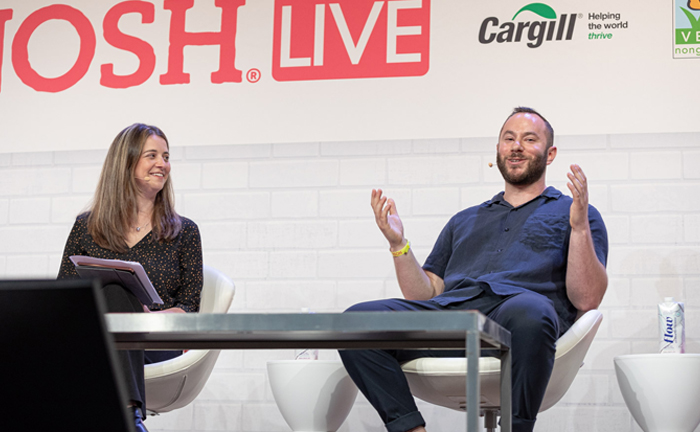
Magic Spoon’s Journey to Target and an $85M Fundraise
This morning, grain-free, better-for-you cereal maker Magic Spoon announced it had raised an $85 million capital round. After three years as an ecommerce-focused business, the brand will also now launch in over 1,350 Target stores nationwide.
Hours after the announcement, Magic Spoon co-founder and co-CEO Gabi Lewis took the stage at NOSH Live to discuss his entrepreneurial journey, from the founding of cricket-based protein bar company Exo while he was an undergrad at Brown University to the new opportunities in the market he saw by creating a disruptive, keto-friendly cereal brand.
The most significant differences between starting Exo – which was acquired by Aspire Food Group in 2018 – and Magic Spoon were education and supply chain, Lewis said. He noted that Exo was an audacious project where success depended on his and his co-founder’s ability to convince consumers to eat food made from insects. By being a first mover in that category, Lewis also had to build out a supply chain from scratch.
For his second venture, however, Lewis said he considered creating another first mover product – a cold brewed cacao drink was on the whiteboard – but ultimately decided instead to focus on a large, established category in need of disruption.
“When we started [Exo] in college, we thought it was a cool idea, but we didn’t really do much more than that to establish the business,” he said. “And so Magic Spoon we knew we wanted to have the opposite experience… We wanted to go after a huge category with tons of demand and consumer love.”
As Magic Spoon launches into retail, Lewis said the brand intends to stand by its price point of $9.99 per box. Although he hopes to bring the price down eventually in order to be more accessible for consumers, he noted that the quality ingredients command the current price point and the company will continue to emphasize its health and wellness messaging to drive sales.
“We don’t want this to be a luxury product,” he said. “It is more expensive than classic cereal only because the ingredients we use are more expensive than classic cereal ingredients. And so what we want this to be is a cereal that’s healthy for anyone, regardless of whether they’re a parent of five,who wants to feed their kids a healthy cereal, or an athlete who wants more protein.”
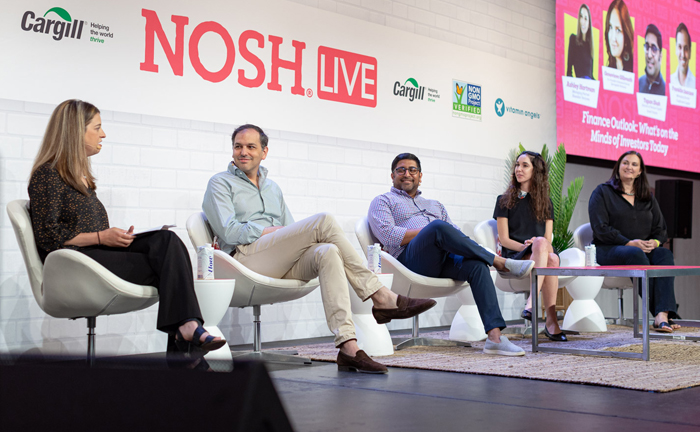
Investors Recommend Brands Prepare for Economic Turmoil
Although they reiterated that the future is uncertain and the economy could balance out, a panel of investors during NOSH Live recommended brands start preparing now for a rocky financial environment in the coming months and years.
The panel included Bluestein Ventures managing partner Ashley Hartman, Springdale Ventures co-founder and general partner Genevieve Gilbreath, SnackFutures director of venture capital Tapan Shah and Coefficient Capital managing partner Franklin Isacson.
Hartman advised companies to act now to curb cash burn and work to have 18-24 months of runway, rather than be caught short in six months. Meanwhile, Isacson noted that as consumers return to pre-pandemic mobility, CPG products that saw large sales spikes in 2020 may not face tougher competition as consumers again split their income between packaged goods and experiential expenditures.
However, from an investment standpoint, the environment has not shifted significantly. Firms are still actively investing in startups, the panelists agreed, and there is still access to capital for small companies. However, Gilbreath noted that valuations need to become more realistic – particularly in plant-based meats – and the influx of tech investments could cool as the up and down realities of scaling CPG businesses becomes more apparent to firms that prefer to see hockey stick growth graphs.
Also at Day One of NOSH Live
- Vital Farms president and CEO Russell Diez-Canseco discussed the importance of learning conscious capitalism in order to grow a successful business, which means thinking beyond maximizing profits for shareholders but also considering the impact decisions have on employees, suppliers, customers and consumers.
- Everything Legendary co-founder Duane Cheers talked about his rise from homelessness to entrepreneurship and encouraged founders to follow his ethos of audaciousness and timeliness, repeating the mantra “Prior Proper Preparation Prevents Piss-Poor Performance.”
- The Kroger Co. natural and organics strategy & innovation manager Holly Adrien and Alexandra Trott, director, business development consulting – merchandising for Kroger’s data arm 84.51 discussed the evolution of omnichannel for CPG over the past several years during the pandemic.
- A panel of founders including Ithaca Hummus president Chris Kirby, Partake Foods CEO Denise Woodard and Little Spoon president Lisa Barnett discussed their fundraising experiences and how they made the most out of the funding to take their companies to the next stage of growth.



